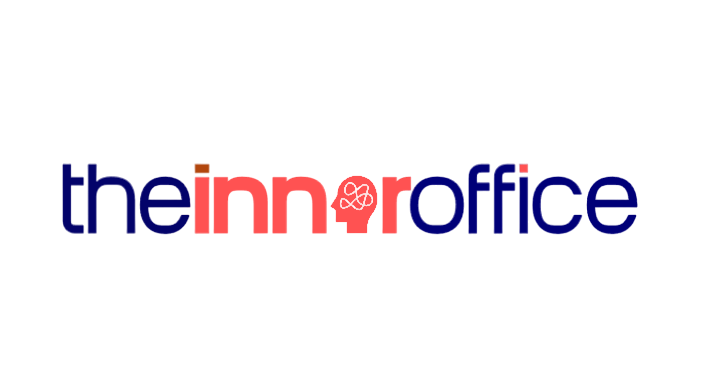Building Your Support System: Why High Performance Is a Team Sport
Image Description:
Central figure of a professional surrounded by a supportive network illustrated as connected nodes: family member, colleague/mentor, friend exercising together, accountability partner, professional counselor. Show both digital connections (video call) and in-person interactions. Warm, collaborative atmosphere with Nairobi professional setting in background.
The Lonely Corner Office
David had achieved everything he’d worked toward. Corner office overlooking Nairobi’s skyline. Senior Vice President title. Compensation package that made his parents proud. Respect from industry peers.
But sitting in that corner office one Thursday evening, with the city’s lights beginning to glow below, David felt utterly alone.
His marriage was strained. His wife complained he was physically present but mentally absent. His children barely knew him—he left before they woke and returned after they slept. His college friends had drifted away, their calls unreturned for months because he was “too busy.”
He’d built an impressive career but dismantled his support system in the process.
When a particularly stressful project threatened to break him, David realized something terrifying: he had no one he felt comfortable talking to about his struggles. Not his colleagues (couldn’t show weakness). Not his team (he was supposed to be their rock). Not his family (they relied on his stability).
He’d confused independence with strength. Self-sufficiency with success.
The loneliest David had ever been was at the peak of his professional achievement.
The Myth of the Self-Made Success
Kenyan professional culture celebrates individual achievement. The self-made man or woman. The person who pulled themselves up by their bootstraps. The leader who needs no one.
It’s a compelling narrative. It’s also dangerously incomplete.
The truth: Every successful professional is supported by a network of people who provide emotional support, practical help, accountability, wisdom, and sometimes just presence.
Research from Harvard’s 80-year Study of Adult Development—the longest study of human happiness ever conducted—found that the quality of our relationships is the single strongest predictor of life satisfaction and even longevity.
Not career success. Not wealth. Not achievement.
Relationships.
Yet we sacrifice relationships in pursuit of success, not realizing that relationships are what make success sustainable and meaningful.
The Kenyan Context of Connection
Understanding relationship dynamics in Kenyan professional life requires acknowledging our unique context:
The Extended Family Structure
Unlike Western nuclear family models, Kenyan professionals navigate complex family systems with multiple layers of obligation and connection.
This is both strength and challenge:
Strength: Built-in support network, shared responsibilities, communal problem-solving Challenge: Multiple demands on time and resources, pressure to succeed for many people, difficulty setting boundaries
The Professional Hierarchy
Kenyan workplace culture often has strong hierarchical elements. This can make horizontal peer support and vertical mentorship more complicated than in flatter organizational structures.
The Gender Dynamics
Women professionals often face additional challenges: balancing career with cultural expectations around family roles, navigating male-dominated industries, managing perceptions about ambition and leadership.
The Geographic Dispersion
Many Kenyan professionals live far from their home communities. Career success often requires urban migration, creating distance from traditional support systems.
What Isolation Actually Costs
The impact of weak social connections on professional performance is significant:
Stress Amplification
Research from UCLA shows that social isolation actually changes how the body responds to stress, making the stress response more severe and longer-lasting.
Mark noticed that difficult work situations felt catastrophic when he faced them alone but became manageable when he could discuss them with trusted colleagues. The situation didn’t change—his capacity to handle it changed based on social support.
Decision-Making Degradation
Psychological research demonstrates that socially isolated individuals make poorer decisions, particularly around risk assessment and long-term planning.
Why? Because thinking occurs not just individually but socially. We refine our thinking by articulating it to others, receiving feedback, and testing our assumptions against different perspectives.
Physical Health Decline
A meta-analysis of 148 studies found that weak social connections increase mortality risk by 50%—comparable to smoking 15 cigarettes daily and greater than obesity or physical inactivity.
Loneliness literally kills, and professional isolation is a form of loneliness.
Burnout Acceleration
Strong social support at work is one of the most powerful protections against burnout. Weak social connections are one of the strongest risk factors.
The Happiness Paradox
You achieve the promotion, the salary, the title—things you thought would make you happy. But without people to share it with, the achievement feels hollow.
The Types of Support You Need
Building a support system isn’t about having hundreds of connections. It’s about having the right types of support:
1. Emotional Support (The Safe Space)
People you can be vulnerable with. Who listen without judgment. Who hold space for your struggles without trying to immediately fix them.
This might be:
- A spouse or partner who understands your professional pressures
- A close friend who knows your full story
- A therapist or counselor trained to support emotional processing
- A faith leader or spiritual advisor



